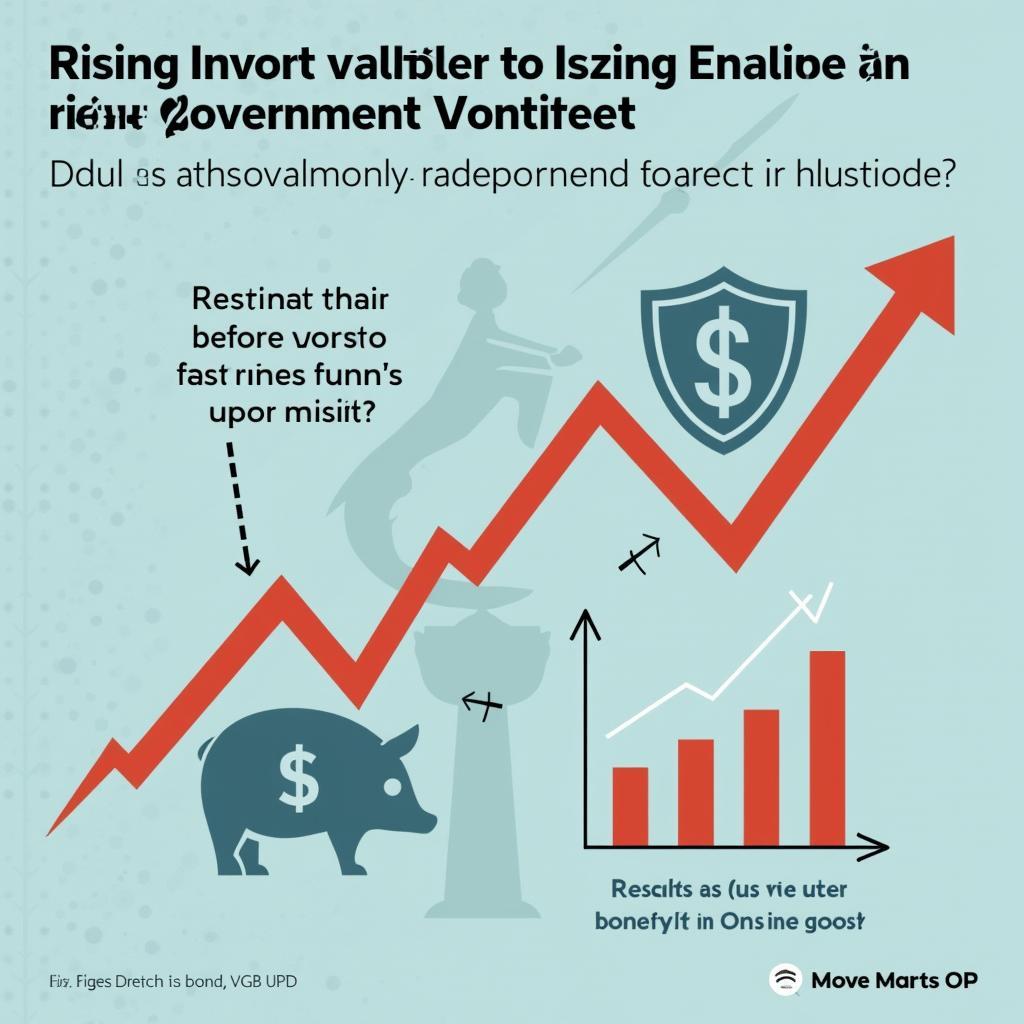Inflation and its impact on government bonds is a topic that frequently appears in IELTS Writing Task 2, particularly in questions about economics and government policies. Based on analysis of past IELTS exams and recent economic trends, this theme has appeared in various forms, most commonly in problem-solution or discussion essay types.

Task Analysis and Sample Question
Some economists believe that high inflation forces governments to offer higher yields on their bonds to attract investors. To what extent do you agree or disagree with this statement? Give reasons for your answer and include relevant examples from your knowledge or experience.
This question requires candidates to:
- Express their opinion on the relationship between inflation and bond yields
- Support their viewpoint with logical reasoning
- Provide relevant examples
- Maintain a clear position throughout the essay
Band 8-9 Sample Essay
High inflation’s impact on government bond yields is a subject that has garnered significant attention in economic circles. I strongly agree that elevated inflation rates compel governments to increase their bond yields to maintain investor interest, and this essay will explore the key reasons behind this relationship.
Primarily, when inflation rises, how inflation impacts fixed-income investment returns become a crucial consideration for investors. Government bonds with fixed interest rates become less attractive during periods of high inflation because their real returns (nominal returns minus inflation) decrease or even turn negative. Therefore, governments must offer higher yields to compensate investors for the erosion of purchasing power caused by inflation.
Furthermore, investors have numerous investment alternatives in today’s globalized financial markets. During inflationary periods, they can choose to invest in assets that traditionally serve as inflation hedges, such as commodities, real estate, or inflation-linked securities. To compete with these alternatives and ensure successful bond auctions, governments must increase their bond yields to levels that make their debt instruments comparatively attractive.
Historical evidence strongly supports this relationship. For instance, during the high inflation period of the 1970s and early 1980s, many developed nations had to offer double-digit yields on their government bonds to attract investors. More recently, emerging markets experiencing high inflation, such as Brazil and Turkey, have had to maintain elevated bond yields to ensure continued investor participation in their debt markets.
In conclusion, the relationship between inflation and government bond yields is clear and well-documented. The need to maintain real returns and compete with alternative investments forces governments to offer higher yields during inflationary periods. This mechanism serves as a crucial market-based check on government financial policies.
Band 6-7 Sample Essay
I agree that there is a strong connection between high inflation and government bond yields. This essay will discuss why governments need to offer better returns when inflation increases.
When inflation is high, the value of money goes down over time. This means that investors who buy government bonds need higher interest rates to protect their money. If governments don’t offer good enough returns, investors might put their money somewhere else, like buying gold or property.
Another important point is that governments compete with other countries for investment. For example, if Country A has 10% inflation but only offers 5% interest on bonds, while Country B has 3% inflation and offers 4% interest, investors will probably choose Country B’s bonds. This competition makes governments increase their bond yields when inflation is high.
Many countries have faced this situation. For instance, some developing countries with high inflation have to offer very high interest rates on their bonds. This helps them attract investors who might otherwise be worried about losing money due to inflation.
In conclusion, I believe that high inflation definitely forces governments to increase their bond yields. This is necessary to protect investors from losing money and to stay competitive in the international market.
Key Vocabulary
- Bond yields (n.) /bɒnd jiːldz/ – The return an investor realizes on a bond
- Inflation hedge (n.) /ɪnˈfleɪʃən hɛdʒ/ – An investment that protects against the decreased purchasing power of money
- Debt instruments (n.) /dɛt ˈɪnstrʊmənts/ – Financial tools used for borrowing money
- Purchasing power (n.) /ˈpɜːtʃəsɪŋ ˈpaʊə/ – The value of currency expressed in terms of goods it can buy
- Fixed-income (adj.) /fɪkst ˈɪnkʌm/ – Providing a fixed return on investment
Additional Practice Topics
Consider practicing with these related topics:
- The relationship between interest rates and economic growth
- Government debt management strategies
- The impact of monetary policy on financial markets
Feel free to share your practice essays in the comments section for feedback and discussion.